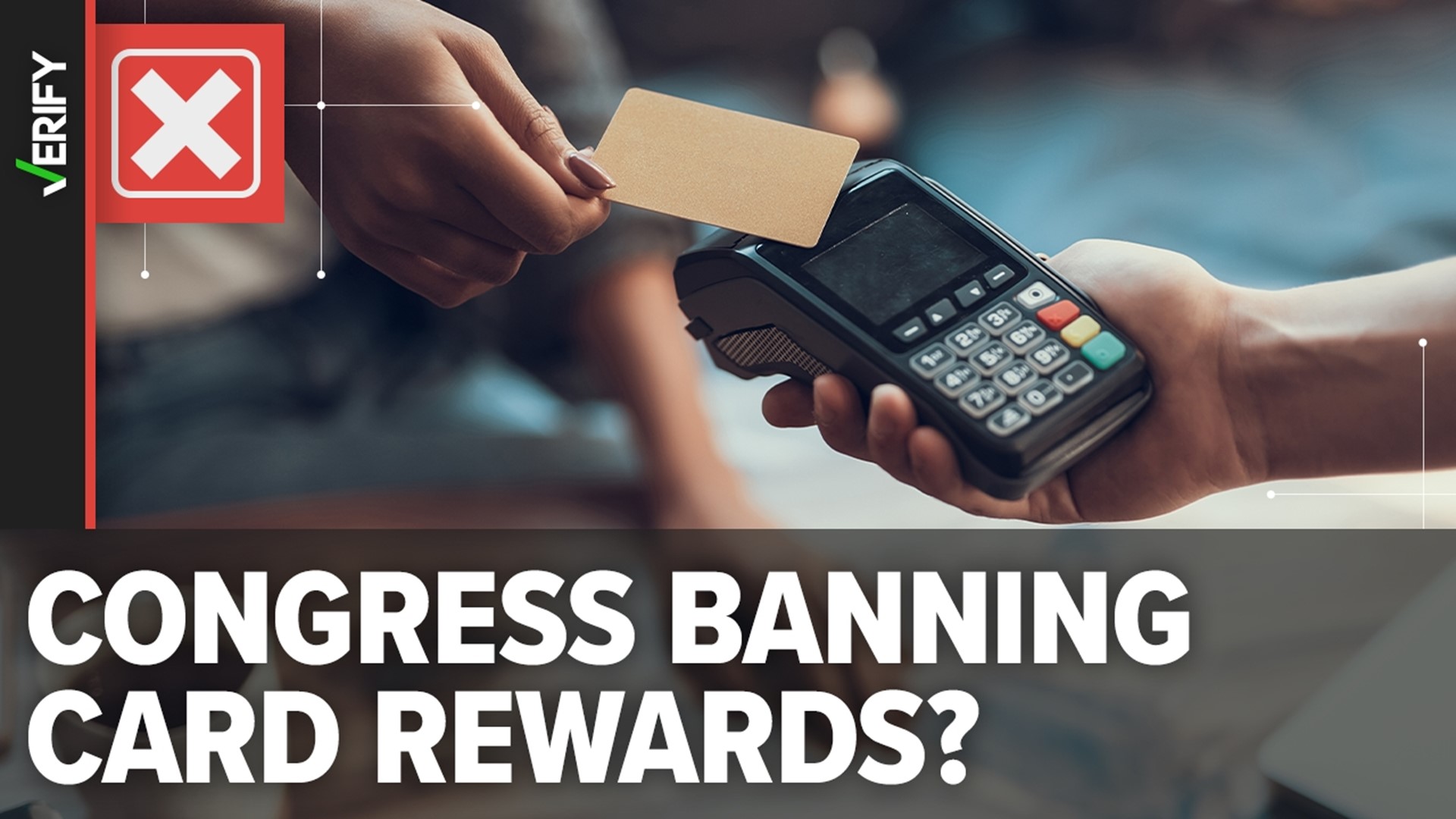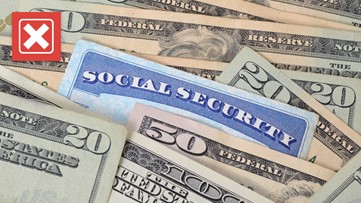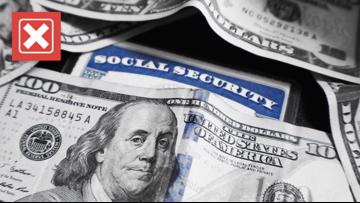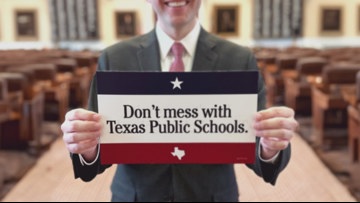Credit card rewards, such as loyalty points, discounts and travel miles, are popular, and play into many people’s choice of preferred card.
Several VERIFY readers recently asked if a bill in Congress is targeting their favorite cards’ perks. Claire asked in an email if pending legislation would remove cash back and travel miles from credit cards. Terri asked if a law would take away rewards from credit cards, which they had heard about from a TV ad that referred to a "Big Box" law. One reader, Barry, texted VERIFY to ask if Congress is considering a bill that would make credit card rewards illegal.
THE QUESTION
Is Congress considering a law that would ban credit card rewards?
THE SOURCES
- Text of Credit Card Competition Act of 2023
- Stripe, a payment processing company
- LendingTree, a loan and mortgage company
- Independent Community Bankers of America (ICBA)
- Electronic Payments Coalition
- Merchants Payments Coalition
- CMSPI, a payments consulting firm for retailers
- Analysis from professors at the University of Pennsylvania Carey Law School
THE ANSWER
No, Congress is not considering a law that would ban credit card rewards; the bill aims to lessen credit card processing fees paid by retailers. However, card issuers have warned that the lost revenue could lead to the end of their rewards programs.
WHAT WE FOUND
The legislation that some people believe will ban credit card rewards is called the Credit Card Competition Act of 2023. It was introduced in both the House of Representatives and the Senate on June 7.
Both versions of the bill are identical. The bill bans payment card networks, such as Visa and Mastercard, from requiring payments made on their cards to be processed through only their networks. The intended effect of this law is to reduce the fees business owners have to pay for every card swipe by creating more competition between payment card networks.
The bill does not make any reference to credit card reward programs, perks, cash back or travel miles. It doesn’t even make any mention of consumers. The bill’s goal is to save businesses money on rising fees.
Credit cards are issued by banks and credit unions, and payment card networks provide the system for processing card transactions, according to payment processing company Stripe. The processing fees paid by retailers go to both the credit card issuers and the payment card networks.
Financial institutions that issue credit cards are arguing that this legislation would effectively put an end to rewards programs by reducing the revenue the issuers use to fund their rewards programs.
The Independent Community Bankers of America (ICBA), for example, said the legislation would “end popular credit card rewards programs by preventing card companies from funding them.”
A statement from the Electronic Payments Coalition released in tandem with seven other trade associations representing the financial industry similarly argued that credit card rewards programs would be eliminated by the law because the card issuers would have less leftover profits to fund them.
According to analysis from loan and mortgage company LendingTree, the six largest credit card issuers made $31.9 billion in card processing fees in 2022 after deducting the $67.9 billion the issuers paid out for rewards and partner payments. LendingTree says it’s these fees that primarily power the rewards programs on credit cards.
But the Merchants Payments Coalition argues that banks would still have plenty of profits left over from fees to pay for rewards programs, which it calls marketing tools to convince consumers to choose a credit card from one bank rather than another.
The Merchants Payments Coalition cites analysis from CMSPI, a payments consulting firm for retailers, that estimates “consumers would incur at most a less than 0.10% drop in rewards.”
Banks have referenced the Durbin Amendment in arguments as to why the legislation would end credit card rewards programs. The Durbin Amendment, passed in 2010, similarly restricted fees on debit card transactions.
An analysis from professors at the University of Pennsylvania Carey Law School says “anecdotal evidence suggests banks ended debit rewards programs in response to Durbin and increased credit rewards.”












